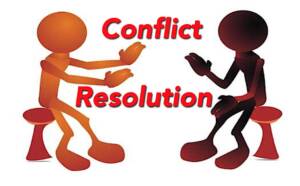
ChatGPT said:
Dealing with someone who lies to you can be challenging and emotionally draining. Here’s how you can respond thoughtfully and assertively:
1. Stay Calm and Composed
- Avoid reacting impulsively or angrily. Take a moment to collect your thoughts.
- Maintaining your composure allows you to handle the situation more effectively.
2. Consider the Context
- Reflect on why the person might have lied. Was it to avoid conflict, protect themselves, or manipulate?
- Understanding the motive can help guide your response.
3. Verify Facts
- If you suspect a lie, gather evidence or verify the information before confronting the person.
- Be sure you’re certain about the dishonesty to avoid unnecessary accusations.
4. Confront Them Respectfully
- Use “I” statements to express how their actions make you feel. For example:
- “I feel hurt because I value honesty, and I believe what you said wasn’t true.”
- Avoid aggressive language, as it can escalate the situation.
5. Set Boundaries
- Let the person know dishonesty isn’t acceptable and communicate your expectations clearly.
- For example: “Honesty is very important to me. If we’re going to maintain trust, we need to be truthful with each other.”
6. Assess the Relationship
- If lying is a pattern, evaluate how it affects your trust and the relationship.
- Decide whether the relationship is worth continuing or if boundaries need to be reinforced further.
7. Focus on Solutions
- Encourage openness by fostering a safe environment for honest communication.
- For instance, say: “If there’s something difficult to discuss, let’s talk about it together instead of avoiding the truth.”
8. Be Ready to Walk Away
- If the person repeatedly lies and shows no effort to change, it may be healthier to distance yourself.
- Protecting your emotional well-being is essential.
Grok:
-
Reacting emotionally can escalate the situation. Keep your composure to maintain control over the conversation.
-
Determine if the lie is malicious or if it stems from fear, embarrassment, or another motive. Understanding why someone might lie can guide your response.
-
Instead of confronting directly with accusations, ask questions that encourage the person to clarify or expand on their statements:
-
“Can you tell me more about that?”
-
“How did that happen?”
-
-
Paraphrase or summarize what they’ve said:
-
“So, you’re saying that… is that right?” This can sometimes lead to the truth without direct confrontation.
-
-
Use “I” statements to express your feelings or concerns:
-
“I feel confused because what you’re saying now seems different from what you said before.”
-
-
If lying becomes a pattern, it might be necessary to set clear boundaries:
-
“I value honesty, so if we’re going to continue this relationship, I need to know I can trust you.”
-
-
Sometimes, confronting the lie directly might be necessary:
-
“I know that’s not true because [provide evidence or context]. Can you explain why you said that?”
-
-
If lying is frequent, reconsider the level of trust you place in this person. Trust is foundational to any relationship.
-
Body language can sometimes reveal the truth. Pay attention to inconsistencies between what is said and how it’s said (eye contact, fidgeting, tone).
-
Depending on the severity and frequency of lying, decide if you want to continue the relationship or limit interactions.
-
Sometimes, if the lie isn’t harmful, a light-hearted approach can diffuse tension:
-
“Oh, you’ve got quite the imagination!”
-
-
If it’s a professional or significant personal relationship, consider bringing in a third party like a mediator or counselor.
-
Forgiveness can be part of moving forward, but be mindful not to forget patterns of behavior. Trust should be rebuilt over time.

When dealing with someone who lies to you, it’s important to prioritize your own well-being by setting clear boundaries, directly addressing the dishonesty, and considering the severity of the lie to determine whether to confront them, limit contact, or seek support from others; if the lying is persistent or causing significant harm, professional help might be necessary for the liar.
-
Call out the lie calmly:
If appropriate, directly state that you know they are lying and explain why you believe that.
-
Set boundaries:
Clearly communicate that you value honesty and will not tolerate lying in your interactions.
-
Ask open-ended questions:
Encourage them to explain themselves further to identify inconsistencies or potential truths.
-
Focus on facts:
When confronting a lie, stick to verifiable facts and avoid personal attacks.
-
Limit engagement:
If the person is a habitual liar, consider limiting your interactions with them to protect your own emotional well-being.
-
Don’t enable lying:
Avoid supporting their lies by covering for them or ignoring the issue.
- Severity of the lie: Evaluate the impact of the lie on your relationship and the situation.
- Underlying reasons: Sometimes, lying can stem from deeper issues like insecurity or mental health concerns.
- Your own emotional state: Don’t engage in confrontations when you’re feeling overly emotional.
-
Pathological lying:
If someone lies excessively and frequently, even about insignificant matters, they might have a condition called pathological lying and could benefit from professional help.
-
Significant harm:If the lies are causing major disruption in your life or relationships, consider seeking support from a therapist or counselor.

Would you like to discuss a specific scenario or how to apply these strategies in your situation?
Now to continue this line of thinking, I will need to synthesize my thoughts expressed here: Conflict Resolution – Biblically – Chris AOM Ministries with this AI produced research. Gotta leave for work presently, but I will complete this as time permits.
Grok brought this neat thought:
-
Victim’s Role: While you can report a crime and provide evidence, you do not have the authority to “drop charges” since this decision lies with the prosecutor. However, your willingness to testify or cooperate can significantly influence the case’s direction.
-
Forgiveness: Forgiving someone doesn’t necessarily mean letting them off the hook without consequences. Forgiveness can be a personal healing process that allows you to release negative emotions like anger or resentment, which can be beneficial for your mental health. However, this does not preclude legal action; forgiveness can coexist with legal accountability.
-
Impact on Relationships: Consider how this decision might affect your relationships, personal peace, or community. Forgiveness might lead to reconciliation or at least closure, but it might also be seen as condoning the act if not handled carefully.
-
Safety and Deterrence: If the act was violent or likely to recur, filing charges could be crucial for your safety and to deter future offenses. Legal action sends a message about the unacceptability of such behavior.
-
Legal Consequences: Understand what filing charges might entail, including the time, emotional investment, and potential outcomes like court appearances, legal fees if applicable, and the impact on your life and the accused’s.
-
Alternative Resolutions: In some cases, mediation or restorative justice might be options where both parties can address the harm without traditional court proceedings, potentially leading to a form of forgiveness and understanding
-
Ethical and Moral Reflections
-
Moral Obligation vs. Personal Healing: Reflect on whether you feel a moral obligation to contribute to justice or if personal healing through forgiveness is more important. This might involve considering the broader societal impact versus your personal well-being.
-
Long-term Effects: Think about how this decision will affect you in the long term – emotionally, psychologically, and socially.




